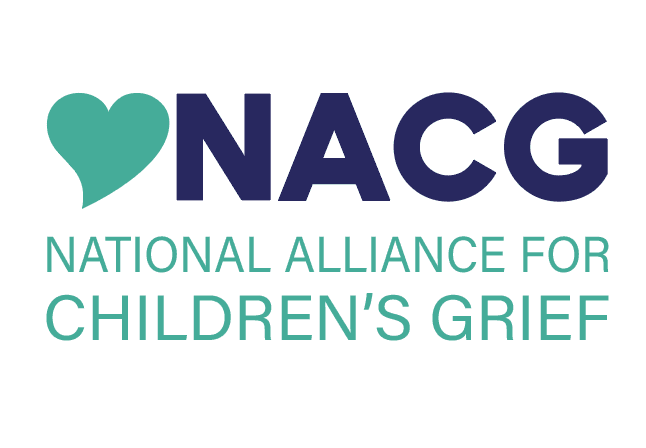Neurodivergence is a term to define brains that function differently in more ways than is considered standard or typical. There are many different manifestations of neurodivergence. This ranges from very mild, where most people would never notice, to more severe which manifests as behaving differently than what is deemed “normal” in our society. Common types of neurodivergence include autism spectrum disorder (ASD), attention deficit and hyperactive disorder (ADHD), dyslexia, dyspraxia, Down Syndrome, and some chronic mental health illnesses. When experiencing the loss of a loved one, people with neurodivergent brains are not exempt from intense emotions prompted by grief, and they are likely to express their grief differently than a neurotypical individual. To better help your child and loved ones navigate their grief process, it is important to familiarize yourself with neurodivergent responses to loss.
Emotional Responses
Individuals with neurodivergent brains often exhibit emotional reactions to loss different from those reactions typical under social norms. For example, children and adults on the autism spectrum may show aloofness, intellectualize their feelings, or display delayed emotional reactions. When approached by others offering their condolences, these individuals can feel and appear outwardly calm. They may also display “scrambling” emotions, such as using laughter to regulate themselves when others show sadness (e.g., crying). In contrast, individuals with ADHD tend to process and express feelings more intensely or unpredictably after the death of a loved one. They may exhibit misdirected hyper-focus in which their sadness and anger may spin quickly into a sense of depression and desperation.
Cognitive Responses
It is common for children with neurodivergent brains to question if they were the cause of the person’s death and display a hyper-focus on their own practical needs after the death of a loved one. Deborah Lipsky, an author who herself is on the autism spectrum, wrote in her book How People with Autism Grieve, and How to Help: An Insider Handbook, “If I had to sum up our way of thinking in one phrase, I would say, ‘It’s all about me…’ It sounds selfish, but that is how our brains are wired.” Other cognitive effects of loss and grief on the neurodivergent population include difficulty processing information, confusion, inability to ask for help, preoccupation with the deceased, fixation on familiarity, and exacerbation of neurodivergent behaviors.
Physical and Behavioral Responses
After encountering a loss, individuals with neurodivergent brains are likely to display physical reactions indicating brewing emotions that may be outside of their awareness. These reactions include, but are not limited to sensory overload, tics, trembling, loss of appetite, poor sleep, challenged in keeping up with their personal hygiene, body aches, fatigue, and loss of bowel and/or bladder control. Changes in executive functioning, such as compulsive behavior and trouble staying organized can follow physical reactions.
Individuals with neurodivergent brains often demonstrate behaviors that can be easily misinterpreted when they are impacted by a loss. For instance, many people on the autism spectrum relax their facial features when their mind is busy. They tend to avoid eye contact and look away as a sign of being overwhelmed or thinking— this is not a personal rejection. People with ADHD may experience a pronounced feeling of desolation with the loss of someone close to them. Other behavioral changes may manifest through acting out, hurting themselves or others, repeating self-stimulatory behaviors, irritability, regression, and loss of skills. Notably, many with neurodivergent brains may have processing delays that can postpone their reactions. Their responses may come many months later, such that their family and friends might not make the connection between the problematic behavior and the death.
Ways to Support
Grief is unique to everyone, and support that would be valuable to the individuals will look different based on the needs of the individual. This is especially true when supporting individuals with neurodivergent brains. Here are some best practices you may want to consider when you try to provide grief support to those who are neurodivergent:
- Be sure to practice active listening and being non-judgmental towards the person as you interact with them.
- Be aware of different grief expressions. You may want to allow alone time for the individual or allow time to be spent with the behaviors that comfort them, such as stimming, holding onto specific objects, and consuming certain food.
- Take care to provide support of the physical body of the person grieving. Make sure to help guide the person to maintain good nutrition, sleep, hygiene, and physical activities.
- Offer affirmation and reassurance by providing accurate and developmentally appropriate information about grief and help the person maintain the routines they kept prior to the loss. Reassurance and routines can help preserve a sense of normalcy after the loss.
- Engage the person in concrete activities to help them feel a sense of control. These activities may include anything that can bring a sense of familiarity and comfort for that person, such as sensory experiences (e.g., certain lights, sounds, or texture) and special interests.
- Hold open conversations about death and be honest while at the same time, maintaining sensitivity during those conversation
The Children's Bereavement Center “CBC” is a 501(c)(3) nonprofit organization providing FREE grief support groups for all ages (4+). Lift From Loss® is a division of CBC providing support for young adults and adults. For additional resources, visit our website at www.childbereavement.org. To register for our free virtual grief support groups, call us at (888) 988-5438 or e-mail support@childbereavement.org.










